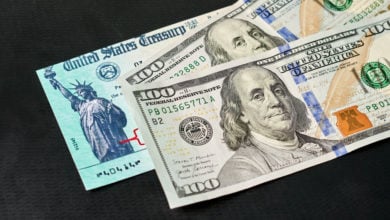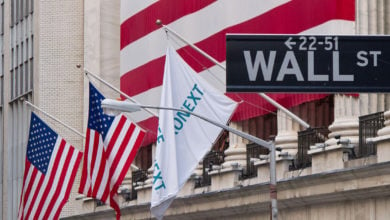On the day after the victory of the Socialist Party presidential candidate Francois Hollande in France’s election, the extended headline of Robert Reich’s column read: “The Answer Isn’t Socialism; It’s Capitalism that Better Spreads the Benefits of the Productivity Revolution.”
The victory of the SP, a mildly left-of-center capitalist party, hardly signals the dawn of socialism in France. The party’s victory is mainly attributable to widespread opposition to the anti-people austerity measures spreading across Europe and the racist policies of the defeated right-wing incumbent, Nicolas Sarkozy.
Who is Robert Reich and why did he feel compelled to rush to the defense of capitalism after Hollande’s election?
A darling of liberaldom
Reich was secretary of labor in President Clinton’s first term, 1993-1997, and is now a professor at the University of California at Berkeley. He frequently appears on National Public Radio, CNN, Democracy Now! and so forth advocating reforms in the financial system. It is no exaggeration to say that he has lately become a darling of all liberaldom.
As secretary of labor and afterwards, Reich was a proponent of the so-called North America Free Trade Agreement, which was passed in 1993. NAFTA fully opened up Mexico to U.S. capital with disastrous results for millions of small farmers in Mexico and working people on both sides of the border.
In 2008, Reich claimed that corporate-created trade agreements like NAFTA were not responsible for the decline in manufacturing jobs in the U.S. “[I]t’s a shame the Democratic candidates for president feel they have to make trade—specifically NAFTA—the enemy of blue-collar workers and the putative cause of their difficulties. NAFTA is not to blame.”
Reich calls for a series of reforms to prevent a repeat of the financial/economic crisis that hit with such ferocity in 2008 and continues to inflict suffering on tens of millions of people.
He, along with a number of other liberal critics, correctly points out that the big banks deemed “too big to fail” and bailed out in 2008-2009 are much bigger today, some of them twice as big. The bankers are continuing their wild speculation safe in the knowledge that should they again threaten to fail, they would again be bailed out.
Dramatic evidence that little has changed since the 2008 bailouts came on May 10, when the biggest U.S. bank, JPMorgan Chase, announced billions in losses on speculative trading. It is not yet clear how many billions or what other big banks may have made similar kind of losing bets.
In a recent interview on Democracy Now!, Reich reiterated a list of the reforms he advocates. These include stricter regulation, limiting the size of banks and reinstating the Glass-Steagall law that required the separation of commercial and investment banks, until it was repealed by Clinton in 1999. Reich finished his list by saying we have to “get big money out of politics, otherwise everything else [meaning all his prescribed reform] is hopeless.”
How do you get money out of politics?
That sounds like an admirable idea. But the trillion dollar question is: How exactly do you do it? The banks and other big corporations spend billions every year, not just on election campaigns, but also to maintain an army of tens of thousands of lobbyists in Washington, D.C. These lobbyists wine, dine and enrich our so-called “representatives” in the House and Senate. And, they bankroll their election campaigns, as well as those of virtually all offices from city councils to the presidency.
Lobbyists not only buy influence, they actually write much of the legislation that ends up becoming law. They are ever so “helpful” in this way, helpful to the banks and corporations they represent, that is. They have written loophole after loophole into the tax code, which is why the code and accompanying regulation now amount to more than 70,000 pages and grows with every passing year. Many sections of the code were written by lobbyists to secure tax breaks for a single industry or often a single company.
Far from diminishing, the role of money in U.S. politics is accelerating at breakneck speed, given added momentum by the infamous 2010 “Citizens United” case. In Citizens United, the Supreme Court ruled that corporations have the same free speech rights as people, and that they can spend unlimited funds on what are known as “Super-Pacs.” These are organizations that pretend to be non-partisan but support one or another candidate through massive ad campaigns.
The idea that such a system can be reformed is an illusion. Even as popular anger is rising, as exemplified in the Occupy Wall Street movement, the bankers and their bought-and-paid-for politicians are moving aggressively to demolish every last obstacle to their greater wealth and power.
But Reich is unfazed by objective reality. In his post-French election article, he begins: “Francois Hollande’s victory doesn’t and shouldn’t mean a movement toward socialism in Europe or elsewhere. Socialism isn’t the answer to the basic problem haunting all rich nations.”
“The answer,” he continues, “is to reform capitalism. The world’s productivity revolution is outpacing the political will of rich societies to fairly distribute its benefits. The result is widening inequality coupled with slow growth and stubbornly high unemployment.”
Reich blithely ignores the fact, proven countless times over the past few centuries, that no capitalist society has ever “fairly distributed” its benefits, nor is it possible for capitalism to do so.
Hopeful irrationality
He concludes with more hopeful irrationality: “We don’t need socialism. We need a capitalism that works for the vast majority. The productivity revolution should be making our lives better—not poorer and more insecure. And it will do that when we have the political will to spread its benefits.”
A fundamental law of capitalism is maximization of profits, regardless of the cost to the people or the planet. It is a law that cannot be repealed by Congress or anyone else. It will exist as long as the dictatorship of the rich, of the one-tenth of the 1 percent, continues.
That is why the program of the Party for Socialism and Liberation is not “Restore Glass-Steagall” or “better regulations.” It is “Seize the Banks.” Taking over the banks would be a critical step toward reorganizing the economy on the basis of providing for the needs of the many, not the wealth of the few.
The only way to end the recurrent and deepening crises caused by capitalism is by ending the capitalist system itself.
We do, in fact, need socialism.





